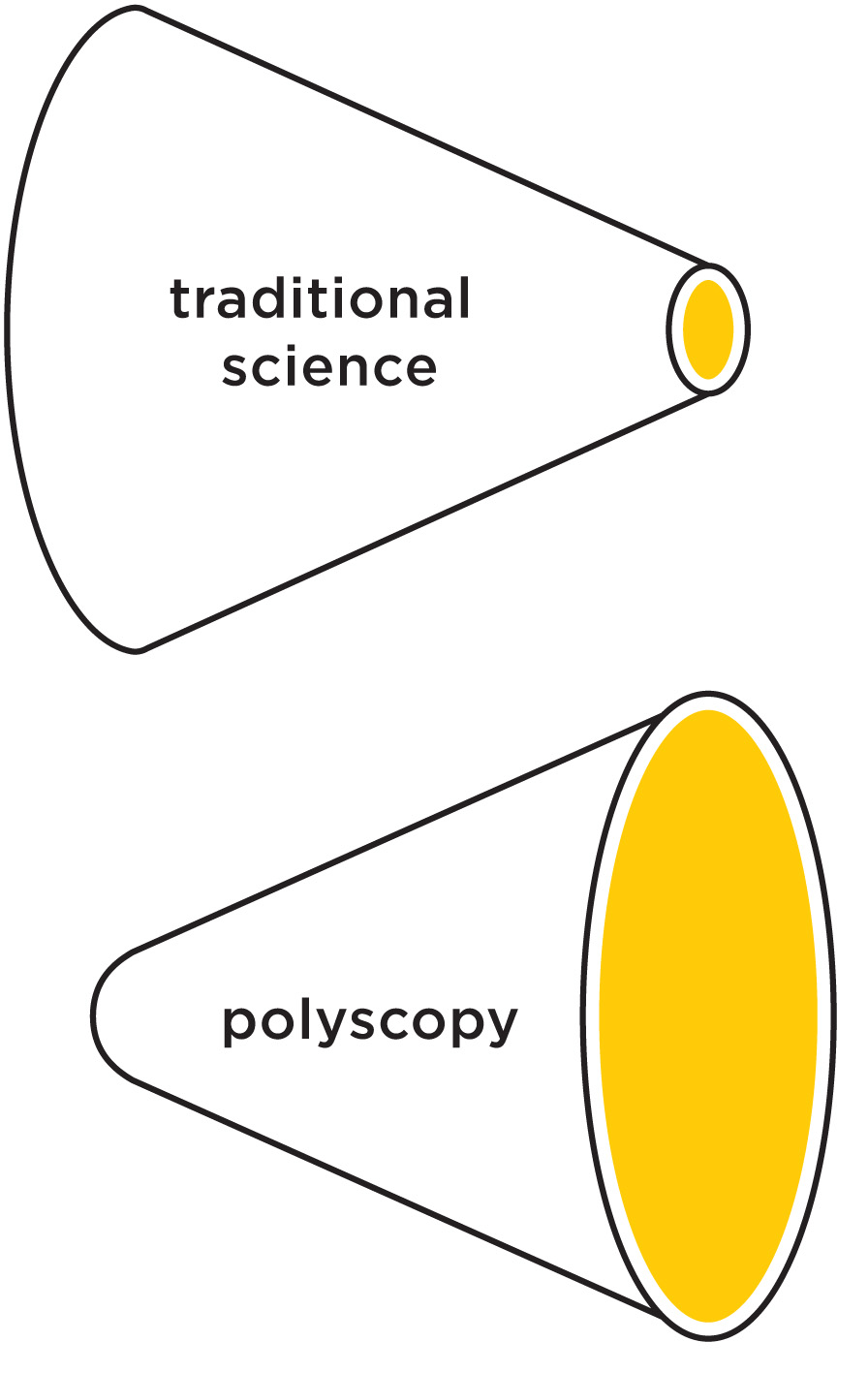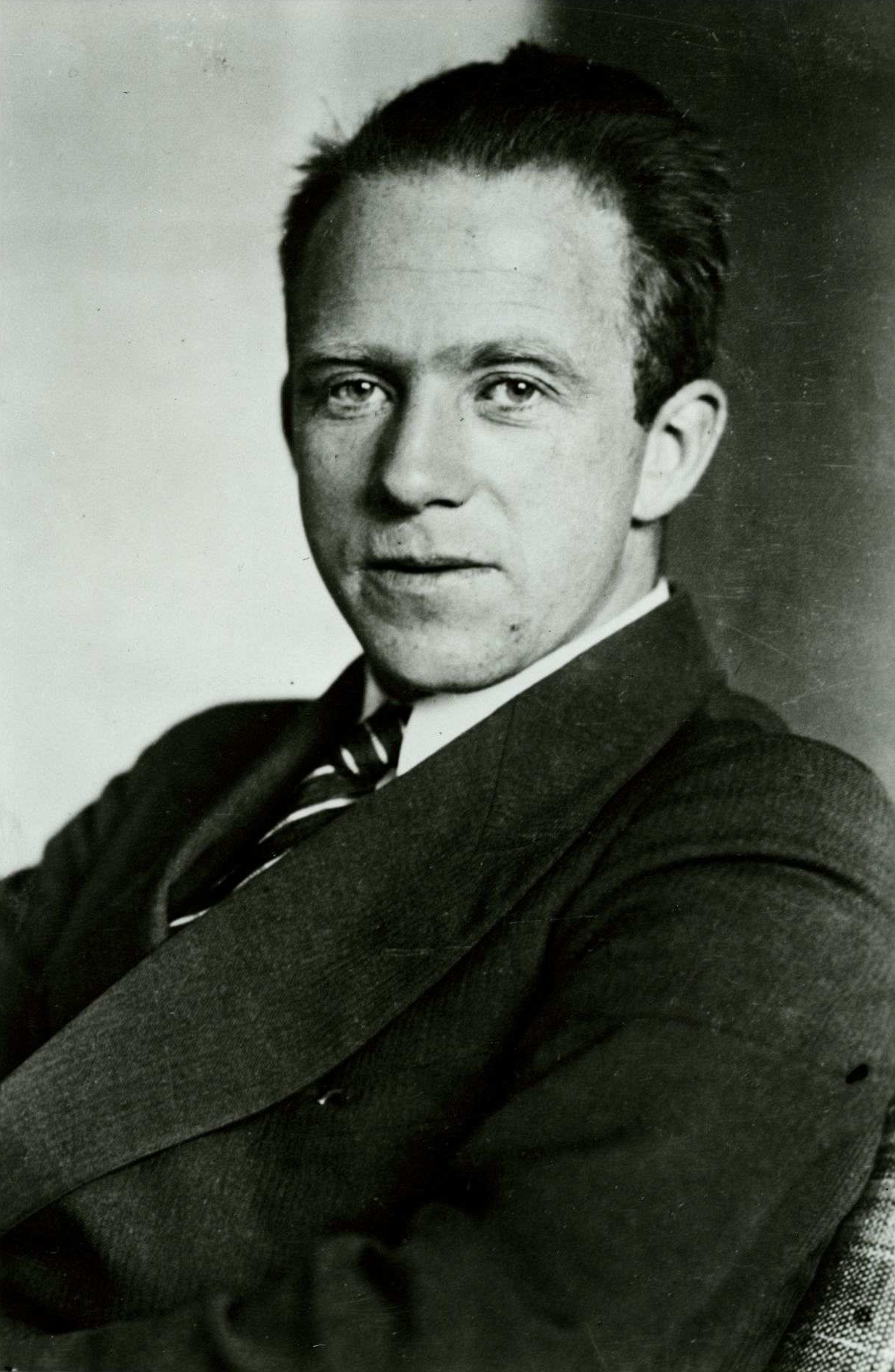Difference between revisions of "Holotopia: Narrow Frame"
m |
m |
||
| Line 1: | Line 1: | ||
| − | <center><h2><b>H O L O T O P I A</b></h2></center><br><br> | + | <center><h2><b>H O L O T O P I A P R O T O T Y P E</b></h2></center><br><br> |
| − | <div class="page-header" ><h1> | + | <div class="page-header" ><h1>Narrow Frame</h1></div> |
<div class="row"> | <div class="row"> | ||
| − | <div class="col-md-3"><h2> | + | <div class="col-md-3"><h2>The pitch</h2></div> |
<div class="col-md-7"> | <div class="col-md-7"> | ||
<p> | <p> | ||
| − | + | The miraculous achievements of science have transformed every aspect of our existence. Are we <em>really</em> calling the scientific method "a narrow frame", and comparing it to a pair of candles?! | |
</p> | </p> | ||
</div> </div> | </div> </div> | ||
| Line 16: | Line 16: | ||
<div class="col-md-7"> | <div class="col-md-7"> | ||
<p> | <p> | ||
| − | + | Science, in the role of truth and meaning provider to our culture at large, has never been created for that role. The fact that it finds itself in that role is a result of a series of historical accidents.</p> | |
| − | </p> | ||
</div> </div> | </div> </div> | ||
<div class="row"> | <div class="row"> | ||
| − | <div class="col-md-3"><h2> | + | <div class="col-md-3"><h2>Reversal</h2></div> |
<div class="col-md-7"> | <div class="col-md-7"> | ||
<h3>The science myth</h3> | <h3>The science myth</h3> | ||
| Line 28: | Line 27: | ||
<h3>The hammer error</h3> | <h3>The hammer error</h3> | ||
<p>So now that we have "the right" approach to knowledge, which is metaphorically a 'hammer'—we either consider everything to be a nail; or we look for the nail.</p> | <p>So now that we have "the right" approach to knowledge, which is metaphorically a 'hammer'—we either consider everything to be a nail; or we look for the nail.</p> | ||
| − | <p>An alternative formulation of this paradox is "searching for the lost keys (or watch) under a streetlight", the story told at | + | <p>An alternative formulation of this paradox is "searching for the lost keys (or watch) under a streetlight", the story we told at a transdisciplinary conference... </p> |
| − | |||
| − | |||
| − | |||
| − | |||
| − | |||
| − | |||
| − | |||
| − | |||
| − | |||
</div> </div> | </div> </div> | ||
| Line 44: | Line 34: | ||
<div class="col-md-6"> | <div class="col-md-6"> | ||
<p> | <p> | ||
| − | + | When we understood that the tools for knowledge work are not written in stone and handed down to our scientific ancestors, but humanly created, it became natural to tailor them to the purpose the serve—the purpose of <em>seeing more</em>. | |
</p> </div> | </p> </div> | ||
<div class="col-md-3"> | <div class="col-md-3"> | ||
| − | + | [[File:Polyscopy.jpg]]<br> | |
| − | <small> | + | <small>Polyscopy <em>ideogram</em></small> |
</div> </div> | </div> </div> | ||
| − | <div class="page-header" ><h2>Federating the | + | <div class="page-header" ><h2>Federating the <em>narrow frame</em> insight</h2></div> |
<div class="row"> | <div class="row"> | ||
<div class="col-md-3"><h2>Stories</h2></div> | <div class="col-md-3"><h2>Stories</h2></div> | ||
<div class="col-md-6"> | <div class="col-md-6"> | ||
| − | + | <h3>Quoting Heisenberg is enough</h3> | |
| − | <h3> | ||
<p>Text</p> | <p>Text</p> | ||
</div> | </div> | ||
| − | |||
| − | |||
| − | |||
| − | |||
| − | + | <div class="col-md-3 round-images"> | |
| − | <div class="col-md-3 | + | [[File:Heisenberg.jpg]]<br> |
| − | + | <small>Werner Heisenberg</small> | |
| − | |||
| − | |||
| − | |||
| − | |||
| − | |||
| − | |||
| − | |||
| − | |||
| − | <small> | ||
</div></div> | </div></div> | ||
| Line 85: | Line 61: | ||
<div class="col-md-7"> | <div class="col-md-7"> | ||
| − | <h3> | + | <h3>A general-purpose (transdisciplinary) science</h3> |
| − | <p> | + | <p>There is an obvious way to overcome the <em>narrow frame</em> issue: |
| + | * define concepts by convention (and eliminate the linguistic <em>narrow frame</em>) | ||
| + | * create an approach to knowledge that is purpose-drive, not tool-driven (by providing a flexible toolkit, not only a hammer; and changing the knowledge-work ethos accordingly) | ||
| + | </p> | ||
</div> </div> | </div> </div> | ||
<div class="row"> | <div class="row"> | ||
| − | <div class="col-md-3"></div> | + | <div class="col-md-3"><h3>Prototypes</h2></div> |
| − | <div class="col-md-7"> | + | <div class="col-md-7"><h3>Polyscopy</h3> |
| + | <p> | ||
| + | Polyscopy is exactly that—it is (a prototype of) a <em>general-purpose methodology</em> for knowledge work. A toolkit, not a hammer. | ||
| + | </p> | ||
Revision as of 10:43, 15 April 2020
Contents
H O L O T O P I A P R O T O T Y P E
Narrow Frame
The pitch
The miraculous achievements of science have transformed every aspect of our existence. Are we really calling the scientific method "a narrow frame", and comparing it to a pair of candles?!
Scope
Science, in the role of truth and meaning provider to our culture at large, has never been created for that role. The fact that it finds itself in that role is a result of a series of historical accidents.
Reversal
The science myth
Considering what is "scientifically proven" (and only that), as "true" and hence worth knowing.
The hammer error
So now that we have "the right" approach to knowledge, which is metaphorically a 'hammer'—we either consider everything to be a nail; or we look for the nail.
An alternative formulation of this paradox is "searching for the lost keys (or watch) under a streetlight", the story we told at a transdisciplinary conference...
Ideogram
When we understood that the tools for knowledge work are not written in stone and handed down to our scientific ancestors, but humanly created, it became natural to tailor them to the purpose the serve—the purpose of seeing more.
Federating the narrow frame insight
Actions
A general-purpose (transdisciplinary) science
There is an obvious way to overcome the narrow frame issue:
- define concepts by convention (and eliminate the linguistic narrow frame)
- create an approach to knowledge that is purpose-drive, not tool-driven (by providing a flexible toolkit, not only a hammer; and changing the knowledge-work ethos accordingly)
Prototypes</h2></div>
<h3>Polyscopy</h3>
Polyscopy is exactly that—it is (a prototype of) a general-purpose methodology for knowledge work. A toolkit, not a hammer.
<h3>Action 2</h3>
Text
</div>
<h3>Back to Five insights
Polyscopy is exactly that—it is (a prototype of) a general-purpose methodology for knowledge work. A toolkit, not a hammer.
<h3>Action 2</h3>
Text


